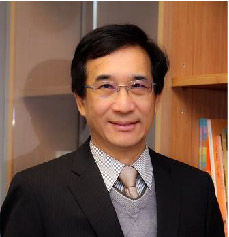Keynotes

The Complex and Distributed Nature of Future Online Learning Environments in Higher Education
We are currently experiencing a time of change for higher education institutions globally. Electronic networks are becoming faster and pervasive. Electronic devices are becoming more mobile, powerful, affordable, and ubiquitous. These factors have contributed to the rapid growth of online learning opportunities, which in turn has led to greater student choice and empowerment over the process of selecting learning options. These options include traditional degrees, certificates, micro-credentials (badges) multi-institutional degrees, and other forms of certification.
Commercial organizations (in contrast to higher education institutions) have typically led the way in providing more alternatives for learning and development. Students in today's world bring experiences and expectations to which educators must be prepared to acknowledge and adapt. In this presentation I will share what educators and universities can learn from business and industry and consumer technologies in terms of providing effective and engaging learning environments for students.

The necessity of Analysis prior to Implementation: Situation, Superiority and Cost-effectiveness: An introspection for Educational Technology
Although there are always pros and cons of using technology for education, in the field of AECT, we tend to proclaim all the positive sides and avoid to discuss its negative influences toward education. Being the professional community that understand both technology and education more than any other academic groups, we, as scholars in AECT, need to add a role as technology filterer rather than technology promoter only. We should not neglect that technology may bring many negative impacts on education Including rapid outdating, costly and hidden expenses, face-to-face interaction reducing, learning disturbing and learning weakening.For finding out the most appropriate way of dealing with technology, it’s necessary to conduct some analysis before implementing any kind of e-learning, including: 1. Superiority Analysis, to check if the approach of using technology is really superior than any other options;2. Situation & Conditions Analysis: to take prescriptive principles to choose the best way of integrating technology (or not) to reach the goal based on certain situation and condition; and 3. Cost-effectiveness Evaluation: to compare the holistic cost (money, manpower, effort and time) and the gains and advantage to see if it’s worthwhile or not.
Professor, Division of Chinese as a Second Language.
Professor, Chinese as a Second Language, National Taiwan Normal University